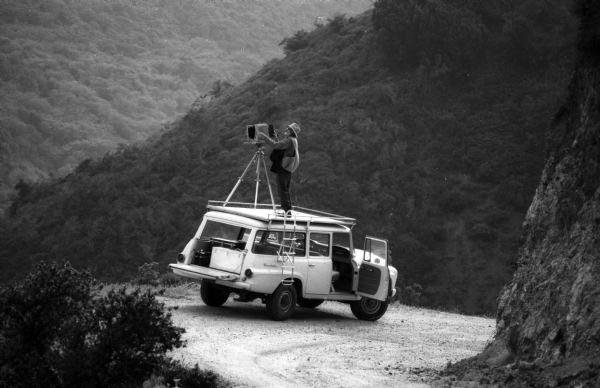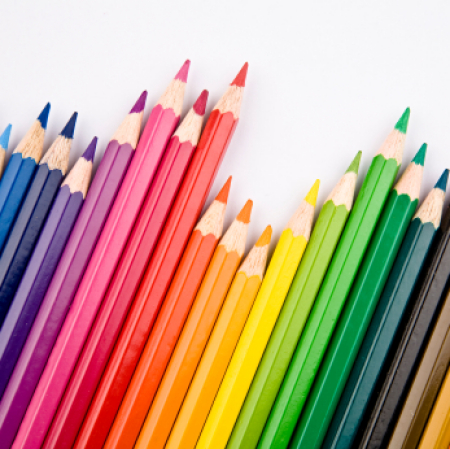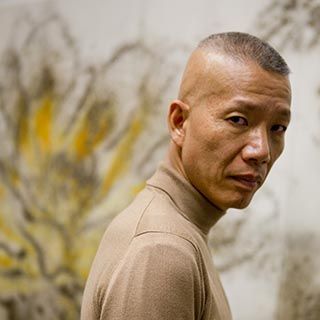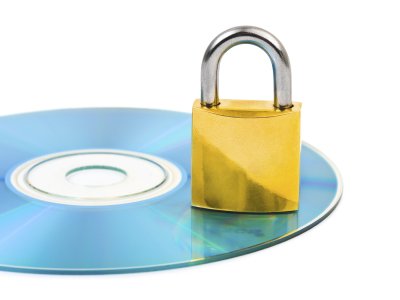Art News and Updates from Gallereo
All the latest news from the art world, as well as what's happening here at Gallereo. If you've built a gallery at Gallereo, let us know about your experience and you and your site could feature in our blog in the coming weeks.Friday 22nd August 2014Artist Spotlight: Ansel Adams Often when we zoom in on an artist to learn more about their career and their accomplishments, we tend to focus on the up and comers. This week, however, we're going to take a look at a truly accomplished photographer who has inspired entire generations of photographers: Ansel Adams. While known and revered among photographers the world over, Adams is not always known to those outside of the photography sphere - at least, not by name, although many would recognize some of his most iconic images of the American landscape.
Often when we zoom in on an artist to learn more about their career and their accomplishments, we tend to focus on the up and comers. This week, however, we're going to take a look at a truly accomplished photographer who has inspired entire generations of photographers: Ansel Adams. While known and revered among photographers the world over, Adams is not always known to those outside of the photography sphere - at least, not by name, although many would recognize some of his most iconic images of the American landscape.
Wednesday 20th August 2014Art Animals We sure do seem to get the strange ones, don't we? Just after we posted our recent Artist Spotlight on Cai Guo-Qiang, a piece caught our eye from the very same artist, although with a slightly more argumentative tone than our own. The famous Chinese artist has recently debuted an installation piece at the Aspen Art Museum in Colorado, and it's not the ire of the Chinese government he's aroused this time, but rather that of some American animal rights activists. The installation piece, has some rather unexpected components: namely, three tortoises. Three tortoises with Apple iPads attached to their backs. Yes, you read that correctly.
We sure do seem to get the strange ones, don't we? Just after we posted our recent Artist Spotlight on Cai Guo-Qiang, a piece caught our eye from the very same artist, although with a slightly more argumentative tone than our own. The famous Chinese artist has recently debuted an installation piece at the Aspen Art Museum in Colorado, and it's not the ire of the Chinese government he's aroused this time, but rather that of some American animal rights activists. The installation piece, has some rather unexpected components: namely, three tortoises. Three tortoises with Apple iPads attached to their backs. Yes, you read that correctly.
Regardless, it's interesting to see how this will play out. Art and activism often go hand in hand so regularly, it will be curious to see what happens when they come to blows. A petition from concerned activists has gathered over 1000 signatures at the time of writing, but the Aspen Art Museum seems unmoved, and simply appreciates the extra publicity!
0 Comments
Friday 15th August 2014Taking Art Classes One of the staples of night school and weekend classes, art classes for adults can be incredibly rewarding experiences that open up new bodies of technique, new connections, and new realms of creative possibility. They can, on the other hand, also be boring, pointless, and depressing - it all depends on how you go into the experience, who the instructor is, and how you interact with your classmates. Many of us artistic types are fairly introverted, and rarely ready to show off our first attempts at new styles or techniques to total strangers - but at the same time, showing total strangers as opposed to friends and family can be liberating. After all, if you choose, you never have to see any of those classmates again. It really does depend on what you put into the situation.
One of the staples of night school and weekend classes, art classes for adults can be incredibly rewarding experiences that open up new bodies of technique, new connections, and new realms of creative possibility. They can, on the other hand, also be boring, pointless, and depressing - it all depends on how you go into the experience, who the instructor is, and how you interact with your classmates. Many of us artistic types are fairly introverted, and rarely ready to show off our first attempts at new styles or techniques to total strangers - but at the same time, showing total strangers as opposed to friends and family can be liberating. After all, if you choose, you never have to see any of those classmates again. It really does depend on what you put into the situation.
If you go into the class with an open mind, ready to experiment and to learn, then you're going to have a much more rewarding experience than you would if you go in afraid of what might happen. Take it as an opportunity for growth, not an opportunity to show off how much you already know. Experiment with media that you otherwise wouldn't get a chance to use. Talk to people with an artistic inclination you otherwise wouldn't meet. Broaden your horizons, and you never know what could come of it. Maybe the person at the next easel over is starting up a gallery!
Wednesday 13th August 2014Do You Compete? Competition isn't usually one of the first ones a person thinks of when they're thinking about art. It's generally high-flying ideological pursuits, pretty pictures, and maybe the whole starving artist thing. But there is a whole world of art competitions for those who are ready to start taking their work out of the studio and putting it in front of the world. Many artists have no desire to do so, and that's a perfectly acceptable choice - but for those that do, we're going to take a look at some of benefits and pitfalls of the art award, whether it's having your work up in a local library or something a bit more prestigious like a juried competition.
Competition isn't usually one of the first ones a person thinks of when they're thinking about art. It's generally high-flying ideological pursuits, pretty pictures, and maybe the whole starving artist thing. But there is a whole world of art competitions for those who are ready to start taking their work out of the studio and putting it in front of the world. Many artists have no desire to do so, and that's a perfectly acceptable choice - but for those that do, we're going to take a look at some of benefits and pitfalls of the art award, whether it's having your work up in a local library or something a bit more prestigious like a juried competition.
That being said, don't hesitate to get your art out into the world any way you know how, whether it's on a crowd-sourced platform online that lets the viewers vote or some other channel for getting exposure. The only route to exposure that's a bad door to open is to do commissioned works for free on the simple promise of "getting exposure" - that tends to be code for "someone is trying to take advantage of you because they don't think they should have to pay for your work". Steer clear of that, and stick to methods that give you and your work the respect deserved.
Friday 08th August 2014When Museums Sell Their Artworks Unless you've been living under a rock for the last 6 years (and nobody foreclosed on your rock), you're probably aware that the world has been going through a serious period of economic turmoil that has rocked industries from one side of the globe to the other. Despite what we hear about art auction prices and record sales numbers, the art world isn't immune from this economic instability, and some of the most venerable museums in the world have had to variously tighten their belts, whether it comes in the form of reduced hours, smaller collections or, in the case of one recent museum, actually beginning to sell off parts of their collection.
Unless you've been living under a rock for the last 6 years (and nobody foreclosed on your rock), you're probably aware that the world has been going through a serious period of economic turmoil that has rocked industries from one side of the globe to the other. Despite what we hear about art auction prices and record sales numbers, the art world isn't immune from this economic instability, and some of the most venerable museums in the world have had to variously tighten their belts, whether it comes in the form of reduced hours, smaller collections or, in the case of one recent museum, actually beginning to sell off parts of their collection.
Wednesday 06th August 2014Because 'Art', That's Why!
0 Comments
Wednesday 30th July 2014Artist Spotlight: Cai Guo-Qiang Most of us in the art world have heard of Ai Weiwei, a famous Chinese artist slash dissident who's been making headlines with his challenges to the dictatorially smothering cultural atmosphere in the world's most populous nation. But perhaps fewer have heard of Cai Guo-Qiang, however unfairly, since he's equally controversial and has a remarkably distinguished artistic career. Born in Quanzhou, Fujian Province, China in 1957, he has been living and working in New York City since the mid 1980s, and has a decided penchant for grandiose works of epic scale.
Most of us in the art world have heard of Ai Weiwei, a famous Chinese artist slash dissident who's been making headlines with his challenges to the dictatorially smothering cultural atmosphere in the world's most populous nation. But perhaps fewer have heard of Cai Guo-Qiang, however unfairly, since he's equally controversial and has a remarkably distinguished artistic career. Born in Quanzhou, Fujian Province, China in 1957, he has been living and working in New York City since the mid 1980s, and has a decided penchant for grandiose works of epic scale.
Cai has had quite a distinguished career, earning numerous plaudits and awards from various juried competitions, and worked as the Director of Visual and Special Effects at the 2008 Olympic Games in Beijing, a fitting assignment for an artist whose grand scale of work is matched only by his impressive visual flair.
Monday 28th July 2014Public Art Thefts Public art is often something a gamble. When bureaucracy and art intertwine, it's not always with pleasing results. A perfect example occurred in Ottawa, Canada, recently this year when a public art installation was erected whose entire design and premise was based on an incorrect encyclopedia entry, leading to snickers and jeers and red-faced officials. Almost the opposite occurred recently in New York City, when the Department of Transportation put up a sign-based art project throughout the city.
Public art is often something a gamble. When bureaucracy and art intertwine, it's not always with pleasing results. A perfect example occurred in Ottawa, Canada, recently this year when a public art installation was erected whose entire design and premise was based on an incorrect encyclopedia entry, leading to snickers and jeers and red-faced officials. Almost the opposite occurred recently in New York City, when the Department of Transportation put up a sign-based art project throughout the city.
It raises a question about street art that has also been raised thanks to the incredible values placed on works by popular street artist Banksy about who actually owns the pieces that are created on walls and other "canvases" that aren't actually owned by the artist. In this particular case, of course, it's likely that the Department of Transportation could be considered the actual owners of the pieces, but street signage is stolen fairly frequently, and any attempts to sell the pieces would doubtless swiftly bring down the wrath of the NYPD, something that the casual public art thief is likely unprepared to deal with. Here's hoping that the signs are restored, and will continue to bring wonder and joy to those lucky few who take the time to truly appreciate and enjoy their surroundings.
Friday 25th July 2014Tablet Sketchbooks Sometimes it feels that being alive in the 21st century is akin to living in a science fiction future, and to a large extent, this is actually true. Portable communicators (aka mobile phones) are everywhere, and any one of them has more power than all the computers humanity had built before the year 1990 put together. It's fantastically amazing, and the art world hasn't been left behind. Digital cameras, home scanners and drawing tablets have completely changed the way we interact with computers and digital imagery, all to our gain. One thing that hasn't really changed, though, is our desire to take ourselves out into the world and create while we're out there. Practicing sketching in the studio is all well and good, but it can get pretty boring pretty quickly. There's a reason you often see art students out at fairs and other locations, practicing life drawing and sketching in real world situations. So how does the science fiction future touch them?
Sometimes it feels that being alive in the 21st century is akin to living in a science fiction future, and to a large extent, this is actually true. Portable communicators (aka mobile phones) are everywhere, and any one of them has more power than all the computers humanity had built before the year 1990 put together. It's fantastically amazing, and the art world hasn't been left behind. Digital cameras, home scanners and drawing tablets have completely changed the way we interact with computers and digital imagery, all to our gain. One thing that hasn't really changed, though, is our desire to take ourselves out into the world and create while we're out there. Practicing sketching in the studio is all well and good, but it can get pretty boring pretty quickly. There's a reason you often see art students out at fairs and other locations, practicing life drawing and sketching in real world situations. So how does the science fiction future touch them?
Tablets. Tablets were a niche market item at their outset, but rapidly have begun to supplant the laptop as the ultra-portable workstation and computer, and with good reason. Excellent screens, and reasonable battery life have solved the problems that held the early models back from widespread adoption. The development of solid application ecosystems for both Android and iOS tablets have greatly changed how useful they are, and the art world is no exception.
You may even own a tablet, without ever having considered the value that it might have as an artistic tool. Many free applications exist that offer sophisticated drawing technologies for those who are interested, although we have to recommend that you buy a stylus for doing any serious kind of sketching. Partly, this is because it most closely mimics the traditional drawing experience, which has remained more or less unchanged since the time of cave paintings with good reason, and partly because using your finger to do more than basic control of the tablet can get pretty frustrating after any length of time. If you stick with it, you could adapt, but as styluses are fairly cheap nowadays, it makes sense to at least give it a shot with that method.
As for which sketchbook application to use, we're recommend testing out a few of the free ones to help you decide what control system works best for you, but personally we're fans of Autodesk's Sketchbook app for Android. It's free, and powerful, and fun to use - and you never have to worry about losing your sketchbook again, since you can save everything you draw to a cloud-based storage system like Google Drive, and many tablets come bundled with some sort of cloud storage from the manufacturer.
Regardless of what you choose to use, go forth and explore the world with your tablet, and uncover your own science fiction future of artistic possibility!
Tuesday 22nd July 2014The Importance of Archiving Being an artist is a great life. Living passionately and fully experiencing the world is something that would change the world if more people had the courage to do it. Busywork and paperwork aren't parts of our lives (in general), and most of us really like it that way - after all, would you rather be at a desk or in the studio? There is one type of work that most of us tend to ignore for this reason, however, and it's usually to our detriment. Archiving. Storage. Backups. It's time that could be spent in the studio, right?
Being an artist is a great life. Living passionately and fully experiencing the world is something that would change the world if more people had the courage to do it. Busywork and paperwork aren't parts of our lives (in general), and most of us really like it that way - after all, would you rather be at a desk or in the studio? There is one type of work that most of us tend to ignore for this reason, however, and it's usually to our detriment. Archiving. Storage. Backups. It's time that could be spent in the studio, right?
Well, that's true, but there is a huge advantage to having a system for storing your past work. Not just your past work, but also your past thoughts, experiments, and even your simplest doodles and thought-fragments. You never know when they might trigger an idea that you've been incubating subconsciously for the last 10 years, patiently awaiting the right time and mindset to bring it out.
This is equally true for digital artists - make sure that you have multiple copies of your history, because a single hard-drive crash could wipe out an entire career's worth of work if you're not careful. As we explained in our post about transitioning to digital work, if your files don't exist in *at least* two different digital places, you can't really be sure they'll survive. The equivalent for artists who work in physical media might well be a safe or fire-proof box, if you can manage it, and if possible, try to make digital images of all your work as well.
Next time you hit a bit of a creative slump, or you're feeling at loose ends, why not take some time to gather up all the various bits and pieces of work and thoughts and ideas that you've had over the last little while and sort through them, whether in an effort to stimulate creativity or just to make sure that you don't lose them? It can be remarkably rewarding, and it has an extra long-term benefit - once your career takes off and you become a world-renowned famous artist, won't you be glad that you kept all the work that acts as a visual autobiography of your creative endeavours? Early sketches and experiments by famous artists command incredible sums of money, even though they are not finished works!




